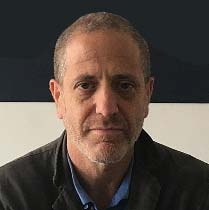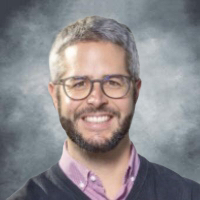Tuesday, 27 July 2021
All times are CEST
Pilot project presentations: Improving the autonomy of people – Autonomous Vehicles for Social Inclusion
Speakers meeting link: https://bit.ly/36uVRwF | Meeting attendants: Facebook live at https://www.facebook.com/designscapesproject/
- 17:30-17:45 Welcome and introduction
(Jeff Israely, Worldcrunch) - 17:45-18:15 Presentation of the pilot project
(Benjamin Nanchen, HES-SO Valais-Wallis) - 18:15-18:30 Q&A and Discussion (*)
- 18:30 End
(*) Other winners of the Designscapes call with similar thematic orientation will be invited to contribut
Our speakers

Jeff Israely is the co-founder and editor of Worldcrunch, a Paris-based anglophone media and content agency, and DESIGNSCAPES’ Communication & Dissemination partner. A former TIME magazine bureau chief in Rome and Paris, he has also been a correspondent for the Associated Press, Boston Globe and Oakland Tribune. He teaches at the Graduate School of Journalism of the Institut d’Etudes politiques de Paris (Sciences Po).

Benjamin Nanchen has been a scientific collaborator at the Institute of Tourism of the University of Applied Sciences Western Switzerland (HES-SO) since September 2016. Since 2019, he has been the manager of the Living Lab for Special Needs.
FULCRUM emphasizes the embedded value of crafting know-how and the potential of bringing together the motivation of European newcomers and centuries-old techniques that characterize local manufacture.
FULCRUM developed a design process that reimagines objects’ manufacture in an urban environment, as well as bridging between Sicilian culture and the migrants’ one through a co-design production cycle, mingling migrants’ and local heritage, and an Archive of knowledge that collects natural materials and techniques used in crafts worldwide.
Reconstructing the process of creation of material culture means to value migrations as a regenerative phenomenon and create innovative development models for peripheral territories. Through this process, we are outlining a design production alternative and reframe functions and interaction with crafts, which are otherwise threatened to disappear on an urban level.
FULCRUM collects and archives knowledge about materials and techniques that are barely even mentioned in design literature and that could be applied in the context of Palermo Palermo as a reference and an inspiration for boosting the development of new enterprises. The experimental furniture is the tangible result of the methodology we applied, based on social interaction and driven by design thinking, which creates a multilayered process reclaiming the materiality of the outcome, both to reach a wider audience and to gain an autonomous economical dimension over time.
An Archive of sustainable techniques and materials was realized as the first draft of an open collaborative database, a repository that spans from engineering information to ethno-anthropological meanings.
The successful realization of high-quality design prototypes is the core aim of FULCRUM: they represent the inputs of migrants and asylum seekers who participated in the project, they show the possibility for traditional crafts to renovate themselves and they suggest the role that design thinking must-have in this process of social inclusion. The participants were able to have an income from the creative activity in FULCRUM allowing them to inquire about the possibility of undertaking these professions or even start their own enterprise.
The objects produced were envisioned to create a community space and show-room, a place for the public to visit, to host events, and commission further productions. Creating a convivial environment and an open workshop in Palermo has a great social relevance: allowing equality in interactions based on cultural exchange and becoming a landmark for both migrant communities and creative ones.
FULCRUM aims to create a network of centers that can welcome and catalyze the know-how from marginalized cultures and can express their potential and dignity, design productions giving shapes to material culture, and making possible the transfer of knowledge.
